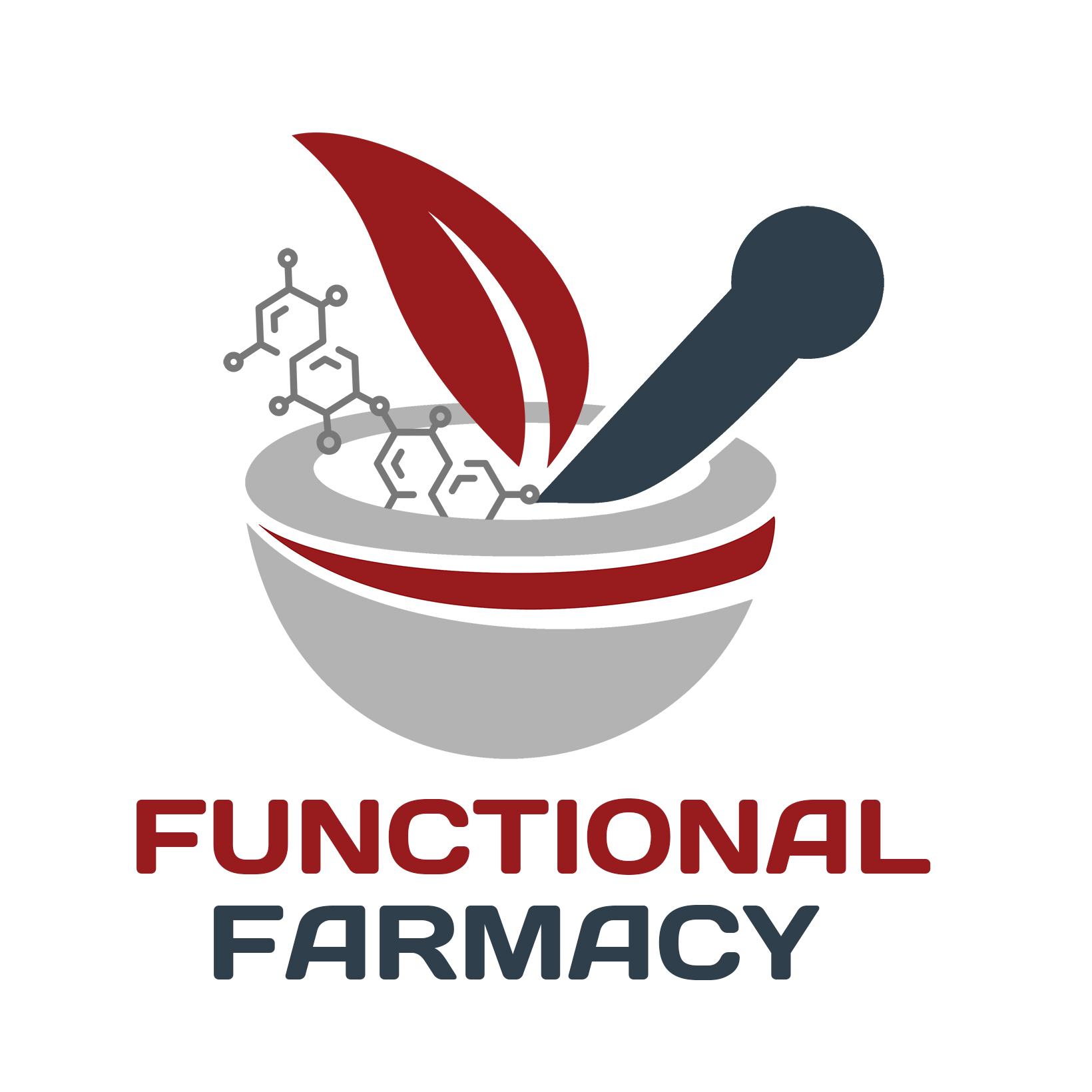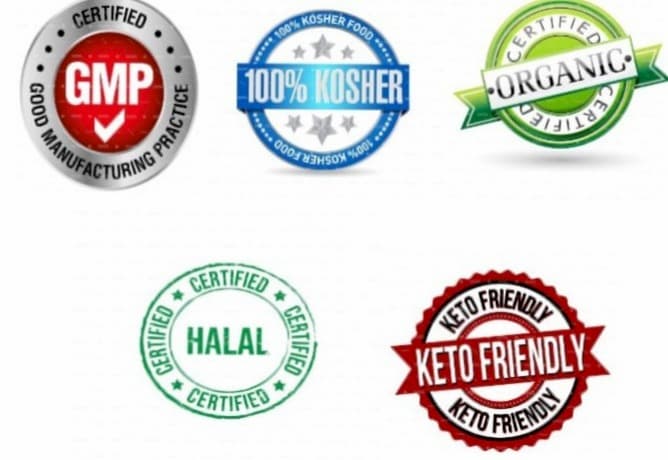Are your supplements safe?
Have you ever heard of a prescription supplement? Prescription supplements are high-quality vitamins, minerals, and herbs that have passed FDA standards of CGMP (Current Good Manufacturing Practices). They certify that supplements have passed a rigorous series of testing to ensure safety, ingredients, and potency. Not everything that is sold over the counter at Natural Grocers or Whole Foods meets these requirements. In fact, very few do. Amazon and Walmart were recently caught in several schemes where supplements they sold had fillers like rice powder or contained heavy metals. GNC, Walgreens, Target, and many more all have been accused or caught selling fake supplements. GNC has even agreed to pay millions in fines because of this! Some of their supplements had nothing close to the dosing they claimed on the label! Just type into your internet browser, "supplement scams" and see for yourself! Supplements prescribed by healthcare practitioners are the direct reaction to the rise in supplement scams.
Thankfully the FDA is going to war on these supplement scammers. They are regularly cracking down on 1,000 supplement companies a month. They have recognized what a danger this is to consumers. Here is the FDA's statement, "Bogus dietary supplements: Many supplements offer health benefits, but claims to treat or cure diseases are unproven and not allowed by law. Increasingly, so-called “dietary supplements” are found to contain hidden illegal drugs and other chemicals that could cause serious harm. This is especially true for weight loss, sexual enhancement, and bodybuilding “supplements.”
Do you need supplements in the first place? Most likely, yes. The quality of our food has decreased over time due to various factors. Today our food is less nutrient-dense so most of us do need some form of dietary supplementation.

So what can you do as a consumer? Education always comes first. Learn about supplement certifications and avoid buying from anyone other than a healthcare professional who you personally know and trust. For starters, only buy CGMP products. Find a CGMP logo on the bottle or don't buy it. Most over the counter supplements do not go through this CGMP process at all. Other companies choose to be “CGMP compliant,” which means they did not complete all the testing but did their own testing and they are trying to follow the rules on safety, but it’s not guaranteed. If a supplement originates from California, they must either have a warning label that the ingredients haven’t been assessed by the FDA, or they must label they “could cause cancer.” Companies that are “Proposition 65 Compliant” means that the Safe Drinking Water and Toxic Enforcement Act of 1986 has determined there are no toxic materials in the supplements. I find that incredibly important.
Prescription supplements are only dispensed by licensed practitioners such as naturopathic doctors, acupuncturists/herbalists, chiropractors, or registered nutritionists. Now, the question you might ask yourself is, why would supplement manufactures exclusively sell their products through healthcare practitioners? This is supplement manufacturers defense against what is happening to them online and in retail stores. Their hope is that by selling their products exclusively through healthcare practitioners, it will prevent scammers from access to products.
The prescription supplements I sell at my clinic are of the highest quality possible and my products go beyond Prop 65 and CGMP certified, which is extremely rare. My product line, "Dr. Fick's Functional Farmacy" comes from a manufacturer that is certified; Prop 65, CGMP, Non-GMO, USDA Organic, Strain Verified, Kosher, Steroid Free, Gluten-Free, Vegan, and UL Certified which is an enhanced certification they very few manufactures have. Here is a list of certifications that my manufacturer carries and that you should become familiar with when shopping for your own supplements:

Good Manufacturing Practices (GMP)
Program from the Natural Products Association (NPA) as well as the U.S. Food and Drug Administration’s Current Good Manufacturing Practices (CGMP) program. Both programs lay the foundation for reproducible dietary supplement quality and ensure that responsible manufacturers have the appropriate quality control measures in place.
Underwriters Laboratories (UL)
Underwriters Laboratories (UL) to ensure quality control and regulatory compliance testing for our dietary supplements. UL has been a respected leader in safety science since 1894.
Informed-Sport/Informed-Choice
Look for the Informed-Sport / Informed-Choice certification on select products for lot-by-lot third-party testing for more than 220 banned substances.
Probiotic Strain Verified
Microbial characterization to choose probiotic strains with the greatest benefit. Probiotic products with this seal have identity-verified probiotic strains.
United States Department of Agriculture (USDA) Certified Organic and QAI Certified Organic
USDA-certified organic and QAI-certified ingredients. If you eat organic food, why wouldn't you take Organic supplements?
Non-GMO (Genetically Modified Organism)
Empowering health means using the safest and healthiest raw materials possible, such as non-GMO ingredients. If you eat Non-GMO food, why wouldn't you take Non-GMO supplements?
Certified Gluten-Free and Gluten-Free
Certified gluten-free products are tested exhaustively to guarantee less than 10 parts per million (PPM) of gluten, and products labeled as gluten-free are tested to ensure they contain less than 20 PPM of gluten.
Vegan
Completely free of animal products in any form.
Kosher
If you appreciate the benefits of kosher foods that are produced using highly sanitary methods to prevent cross-contamination, look for this certification.

So there is all that going on with Western Supplements, what about Chinese Herbs? I lived and worked in a hospital in Nan Jing, China. That experience taught me more about Chinese herbs then my Masters's Degree in Chinese herbs! After seeing the sewage water they spray crops within China, I will never give a patient any supplement/herb from China! High quality does come at a higher price, but as you can see, there is often much more reason to choose a company with more certifications. Just because something is natural doesn’t mean it is safe. There are tons of natural substances that have been banned in the U.S. and worldwide because of their toxicity. Herbal combinations, vitamin combinations and medication interactions can cause tremendous problems as well. This is where Functional Medicine comes in, a full evaluation of your health history, blood tests, diet, and lifestyle. Click here for more info about Functional Medicine
Although self-directed supplementation is generally safe, the goal of supplements is not necessarily for symptom relief, but to fix a core problem at its root, which is a slow process and many don’t notice much physical difference. For example, if your doctor told you that you have high cholesterol, most likely you never felt your high cholesterol. But, more than likely, your doctor will want to prescribe you medication or supplements to help decrease your cholesterol, and hence decrease your risk of stroke or heart attack. Supplements generally include vitamins and minerals such as vitamin C, selenium and magnesium, etc. These are the building blocks of our bodies and what we acquire through food.
Eating a variety of foods and having a healthy diet that agrees with your specific genetic makeup and the cellular process is ideal. With the lack of nutrient-dense soil and overworked farmlands, our food tends to be less nutrient-rich than 100 years ago. Our immune systems have more to contend with nowadays. Pollution, chemicals, stress, and lack of exercise are a few common reasons our bodies need more nutrients, love, and help. I always try to prescribe food first, but if people cannot eat all their nutrients, supplementation will save the day. When I read someone’s blood tests, I am looking for areas where the body is suffering and vitamin and mineral supplementation might be needed.
On the opposite end of the spectrum is herbs. These are things like willow bark (which is what aspirin was derived from), ginseng, dong Quai, chamomile, etc. We know these plants have certain medicinal properties that help ease symptoms. Herbal concoctions such as Chinese herbs are much better to help reduce a symptom or complaint, but they are not typically designed to treat a problem at its core, although there are some exceptions to that rule. So you feel better with herbs, but the problem still lingers without supplementation. For example, if you suffer from hot flashes, herbs can greatly reduce them, but if you discontinue the herbs, your hot flashes will likely come back. The Chinese herbal prescription supplements I prescribe to patients are all grown in the U.S. and are triple-tested for potency and purity.

Traditionally, acupuncturists are also taught herbal concoctions to help treat their patients, but not supplements or analyzing blood tests to prescribe a needed formula. In my practice now, we prefer to use all types of medicines that get people better with little risk or side effects. We use acupuncture and other physical techniques along with safe supplements and herbs to help patients get well. We are able to quickly and efficiently help people determine what is needed and what isn’t, and which combination is best for their individual situations. It is a great, proven method!
To find out precisely what supplements you should and should not be taking schedule your functional medicine appointment today!

When you subscribe to the blog, we will send you an e-mail when there are new updates on the site so you wouldn't miss them.

Comments